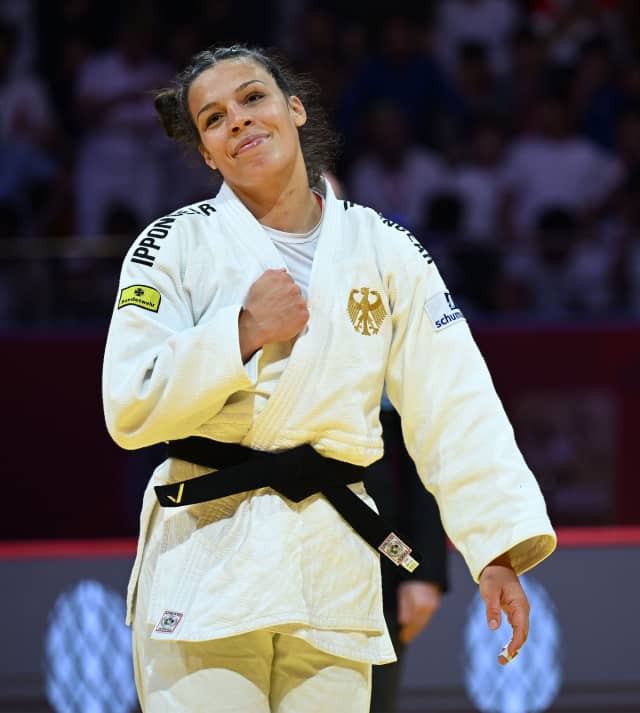Despite being relegated to the repechage, Boehm advanced, but as her opponent was unable to compete, she won that contest. Due to the draw and the unpredictable circumstances of the competition, she found herself in a position to compete for bronze without having yet registered a win in Dushanbe.
Yuxiao Peng continued with momentum, advancing to the final, the first of her career at this level. To face her we found a world tour regular, Briton Emma Reid, already a finalist at the Upper Austria Grand Prix in March and world bronze medallist last year in Abu Dhabi. Could this scare Peng? Nothing was less certain, given the way the competition had unfolded so far for her.
The first score came from Reid, with a deep o-soto-otoshi for waza-ari. The next movement was a perfect example of uchi-mata-sukashi. Yuxiao Peng attacked first with uchi-mata, but Reid read it perfectly. With a little tai-sabaki she let the Chinese judoka go through and drove her on to her back for ippon; perfectly executed. This is gold medal number two in a grand slam for Emma Reid.
Alina Boehm found herself in a tie for third place against Migle Julija Dudenaite (LTU). This time Boehm saved her tournament, scoring ippon with a te-waza technique that put a smile back on her face; the 11th medal for the German judoka.
Kaila Issoufi (FRA) gave France one more chance to raise the national flag at the awards ceremony by qualifying against Kristina Konovalova (IJF) to win bronze. After less than a minute, Konovalova was already penalised twice, not the best way to start a bronze medal contest. As the golden score period started Issoufi also received a shido for passivity. It was a confused action on the floor that decided that the medal would go to France. Issoufi missed an attack that put her on her back at the mercy of Konovalova, but the latter missed the opportunity and was turned over and pinned down. A yuko for Kaila Issoufi, which is enough in golden score, and a first medal in a grand slam.






